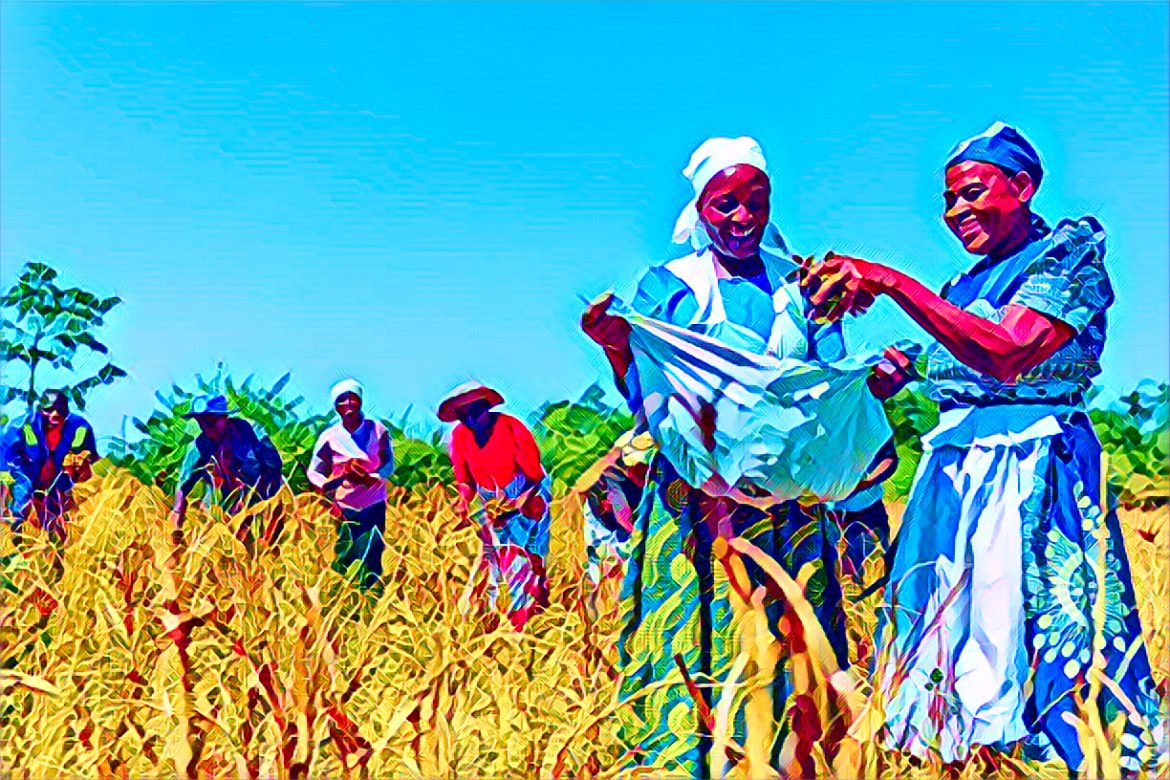KEY POINTS
- Climate-resilient agriculture can boost productivity and reduce food insecurity.
- Improved land tenure could unlock financing and boost farmer confidence.
- Expanding irrigation is essential to reduce dependency on seasonal rains.
Agriculture is an essential sector in Zimbabwe, sustaining the livelihoods of a substantial portion of the rural populace and making a significant contribution to the economy.
Nonetheless, Zimbabwe’s agricultural sector encounters significant obstacles that hinder its productivity and sustainability. Confronting these problems while capitalizing on growth opportunities is crucial for improving food security and fostering economic recovery.
Principal Challenges Confronting Zimbabwe’s Agricultural Sector
A significant challenge is climate change, resulting in erratic precipitation patterns, intense droughts, and extreme weather phenomena. Approximately 60% of Zimbabwe’s rural populace depends on rain-fed agriculture, rendering them especially susceptible to more frequent droughts during the past twenty years. Soil degradation, deforestation, and erosion diminish the yield of arable land.
According to the land portal, land reform and tenure insecurity provide additional impediments. The Fast Track Land Reform Program (FTLRP) redistributed commercial farms to smallholders, resulting in extensive tenure instability that restricted access to investment and financing. Numerous smallholders lack legal land titles, hindering their ability to obtain financing essential for agricultural enhancements.
Access to financing constitutes a significant obstacle, particularly for small-scale farmers who find it challenging to obtain inexpensive credit. Approximately 10% of Zimbabwean farmers have access to formal loans, while elevated interest rates and restricted financing alternatives hinder investment in inputs such as seeds and machinery (World Bank, 2019). Insufficient infrastructure, characterized by substandard road networks and restricted irrigation, leads to significant post-harvest losses.
Opportunities for Development and Fortitude
Notwithstanding these obstacles, Zimbabwe’s agricultural economy possesses considerable growth potential. A viable strategy is climate-resilient agriculture, encompassing drought-resistant crop types, water harvesting, and conservation techniques that enhance soil health. Conservation agriculture, which integrates minimal soil disturbance with crop rotation, has demonstrated the capacity to double yields even under drought conditions.
Crop diversification presents supplementary growth prospects. High-value commodities such as avocados, macadamia nuts, and citrus fruits are gaining popularity in export markets and offer enhanced revenue stability compared to basic crops. Zimbabwe’s macadamia exports have increased by 30% in the last five years. Livestock farming, particularly poultry and goat production, offers prospects for revenue generation and food security.
Enhancing irrigation infrastructure is essential for diminishing reliance on rainfall. At now, about 10% of Zimbabwe’s cultivable land is irrigated. The increase in irrigation would provide year-round cropping, thereby stabilizing productivity and mitigating the impacts of climate variability.
Advancing Towards a Sustainable Agricultural Future
According to the World Bank Climate Change Knowledge Portal, the agricultural obstacles in Zimbabwe—climatic hazards, tenure instability, financial limitations, and pest threats—are considerable yet manageable. Investing in climate-resilient methods, crop diversification, and irrigation will enable Zimbabwe to establish a robust and sustainable agricultural economy. Reforms in government policy, especially with land tenure and financing, are crucial, as are public-private partnerships to enhance infrastructure.
The cooperation of the government, corporate sector, NGOs, and local communities will be essential to surmounting these challenges and realizing Zimbabwe’s agricultural potential. Strategic investments and sustained assistance can enable Zimbabwe’s agriculture to stimulate economic growth, alleviate poverty, and attain enduring food security.


